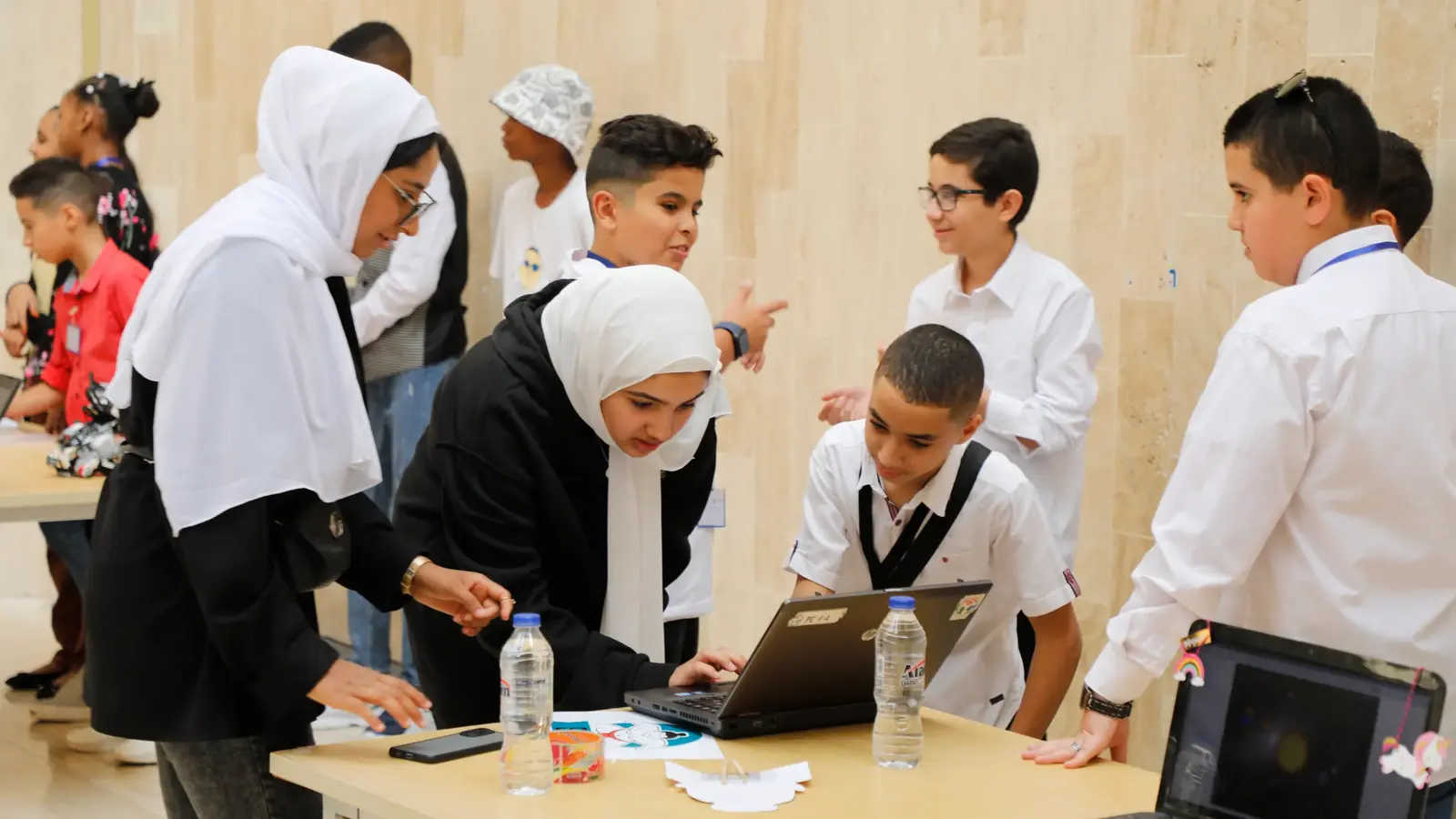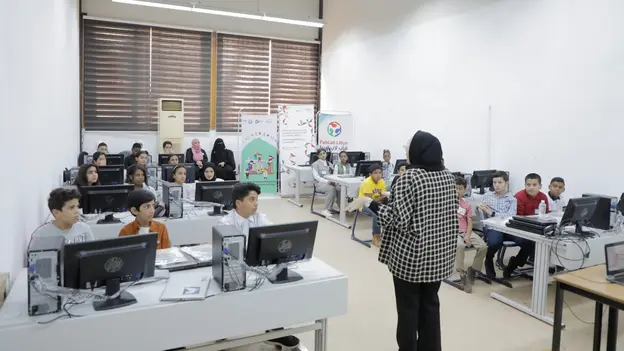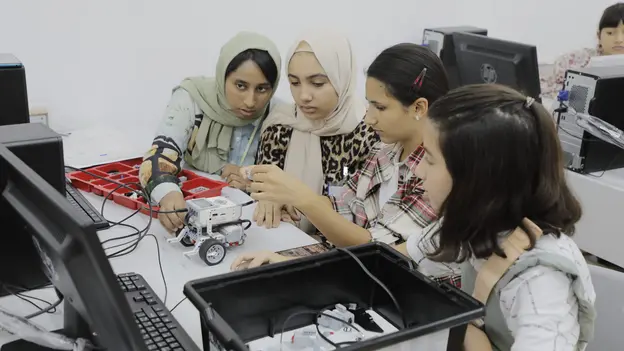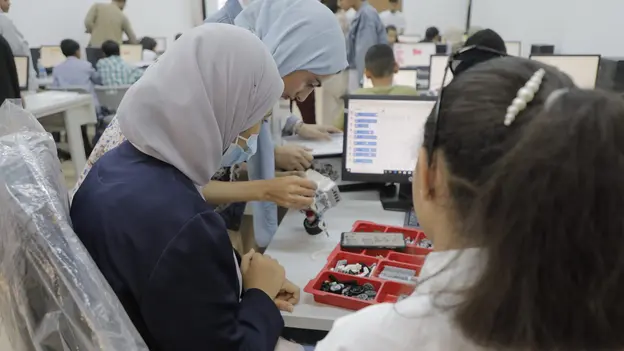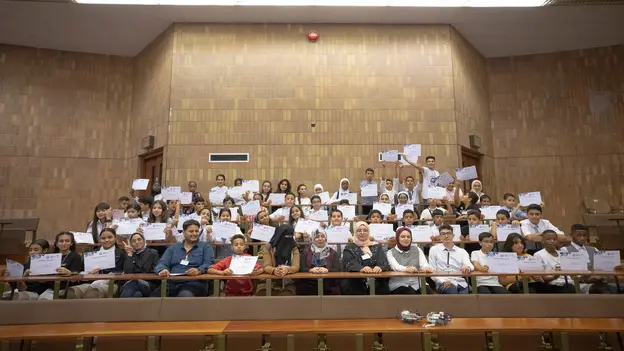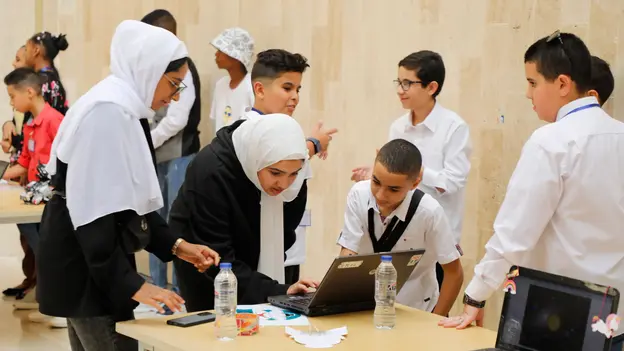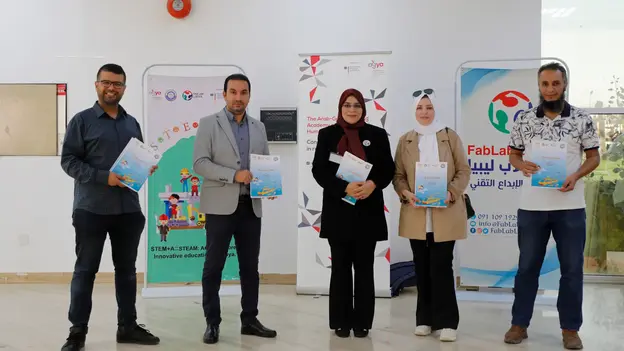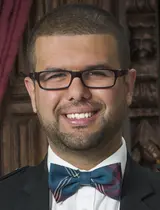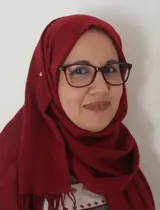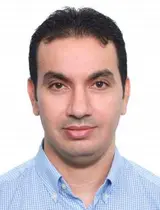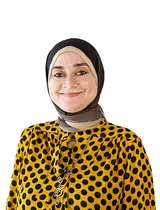Working Group Project
The Potential of STEAM Education in Libya
Training
The armed conflicts in Libya have affected the country and its inhabitants on a political and economic, but also on a social, educational, and psychological level. Additionally, diverse migration movements with internally displaced persons and migrants from Sub-Saharan Africa set high demands for integration to the education system. Resident, migrant, and displaced children alike are shaping their future and they need to learn at a young age to overcome their differences and combine their strengths and interests.
Connecting arts with science education
Therefore, the project targets teachers and their students from various backgrounds. By promoting the concept of STEAM education, the project fosters the inclusion of new and interactive teaching methods. Originating from the STEM concept, it combines the fields of science, technology, engineering, and math additionally with arts, introducing the humanities to this approach. In an era when technical and scientific skills are increasingly important in the workforce, it is all the more important to introduce children to STEAM Education at an early age. STEAM knowledge and skills must be integrated and complemented to help students not only to understand the principles but also to enable them to put them into practice in everyday life. This does also include the improvement of social skills, such as tolerance, joint problem solving, empathy, and teamwork.
Introducing STEAM to children and schools
The project started in 2021 with a hands-on training for schoolteachers on STEAM methods and how to include them in school curricula. These teachers successfully transformed their teaching methods and act now as multipliers disseminating the gained knowledge into their respective schools.
The second phase focused on the training of students from different social backgrounds. More than 60 students from preparatory schools in Benghazi as well as displaced and migrant children came together for a two-weeks training course. In small groups, they also worked on joint projects, which were presented during the closing science fair event. At the science fair, more than 150 participants exchanged about teaching methods and viewed the exhibited project ideas.
Additionally, the designed course on programming for children has been published as open access material in Arabic and has been distributed to schools in Benghazi and beyond. Especially programming offers the opportunity to learn different skills at once, such as logic, combinatorics, storytelling techniques, concentration, and creativity. The project served as a pilot project, which will be evaluated to identify the potential of being realized in other countries and contexts.
- Disciplines Involved
- Arts, Chemistry, Computer Sciences, Engineering, Mathematics, Physics
- Cooperation Partners
- University of Benghazi, Libya
- FabLab Libya
- Helmut Schmidt University Hamburg, Germany
- Project Title
- STEM+A=STEAM: AGYA explores Innovative Education in Libya Part II
- Year
- 2022
- Funding Scheme
- Working Group Project
- Working Group
- Innovation
- Countries Involved
- Libya, Germany
Project Partners
The Potential of STEAM Education in Libya
More than 60 students from preparatory schools in Benghazi as well as displaced and migrant children came together for a two-week training course. In small groups, they also worked on joint projects, which were presented during the closing science fair event.
